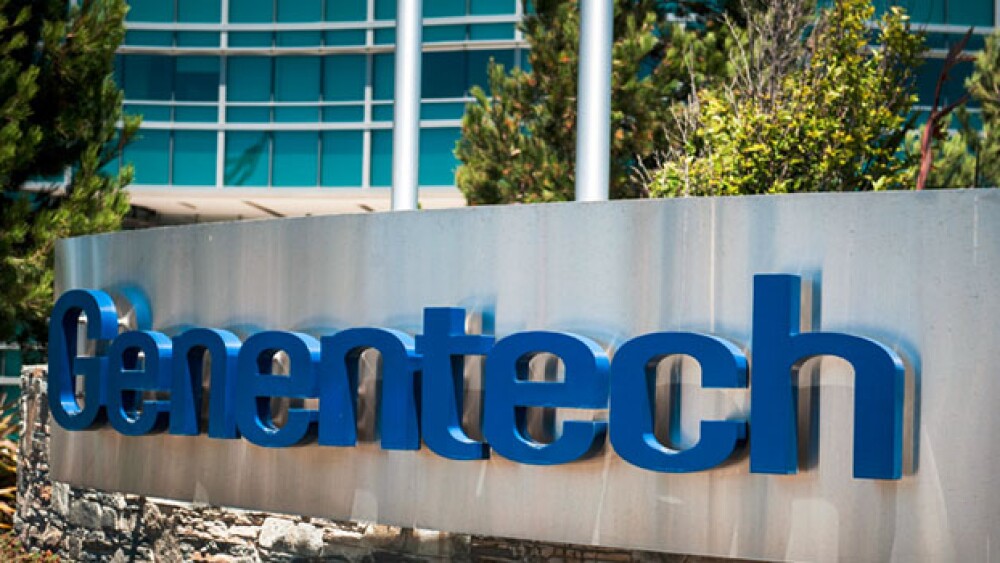This morning, Genentech released results of its Phase III IMpower 133 trial that showed treatment with Tecentriq plus chemotherapy helped people with extensive-stage small cell lung cancer live significantly longer than with chemotherapy alone.
This morning, Genentech released results of its Phase III IMpower 133 trial that showed treatment with Tecentriq plus chemotherapy helped people with extensive-stage small cell lung cancer (ES-SCLC) live significantly longer than with chemotherapy alone.
This is the first Phase III study to show an immunotherapy-based combination significantly improved overall survival as an initial treatment for people with ES-SCLC, Genentech said in a statement. In addition to improving overall survival, Genentech said the combination also improved progression-free survival in the same patients. The trial data was presented today at the 2018 World Conference on Lung Cancer and also published in The New England Journal of Medicine.
Tecentriq is an anti-PDL1 inhibitor. The drug is designed to bind to PD-L1 expressed on tumor cells and tumor-infiltrating immune cells, blocking its interactions with both PD-1 and B7.1 receptors. Lung cancer is the leading cause of cancer death globally and results in about 1.76 million deaths annually. NSCLC is the most common type of lung cancer. It accounts for about 85 percent of all cases. The five-year survival rate for patients diagnosed in the United States with any stage of lung cancer is estimated to be 18 percent. Overall survival is a key selling point for lung cancer treatments. Roche has been hoping its PD-L1 inhibitor can cut into some of the market share held by Merck’s Keytruda and Bristol-Myers Squibb’s Opdivo.
According to the Genentech data, the Tecentriq and chemo combination provided 12.3 months of average overall survival time compared to 10.3 months of chemotherapy alone in the intention-to-treat population. The Tecentriq -based combination also significantly reduced the risk of disease worsening or death. According to the data, the combination provided an average of 5.2 months progression-free-survival, in comparison to 4.3 months on chemotherapy alone.
Safety for the Tecentriq and chemotherapy combination appeared consistent with the known safety profile of the individual medicines, and no new safety signals were identified with the combination, Genentech said.
Sandra Horning, chief medical officer and head of global product development at Roche, Genentech’s parent company, said the data revealed today represents the “first clinically meaningful advance in the disease in over 20 years.
“Our goal is to find treatment options for all types of lung cancer, and we are eager to work with global health authorities to bring this Tecentriq regimen to people living with this particularly difficult-to-treat form of lung cancer as soon as possible,” Horning said in a statement.
The IMpower 133 study enrolled 403 people and randomized them equally among patients who received the combination treatment and chemotherapy alone. Patients received treatment on 21-day cycles for four cycles, followed by maintenance with Tecentriq or placebo until progressive disease (PD) as assessed by the trial investigator. The Phase III study met is overall survival and progression-free survival endpoints.
Earlier this summer, Roche revealed interim results from the Phase III IMpower 132 trial that had somewhat mixed results. Interim data showed that Tecentriq and chemotherapy hit its co-primary endpoint of progression-free survival in a Phase III trial for non-small cell lung cancer patients, but at the time had not achieved statistical significance in overall survival, a co-primary trial endpoint.





